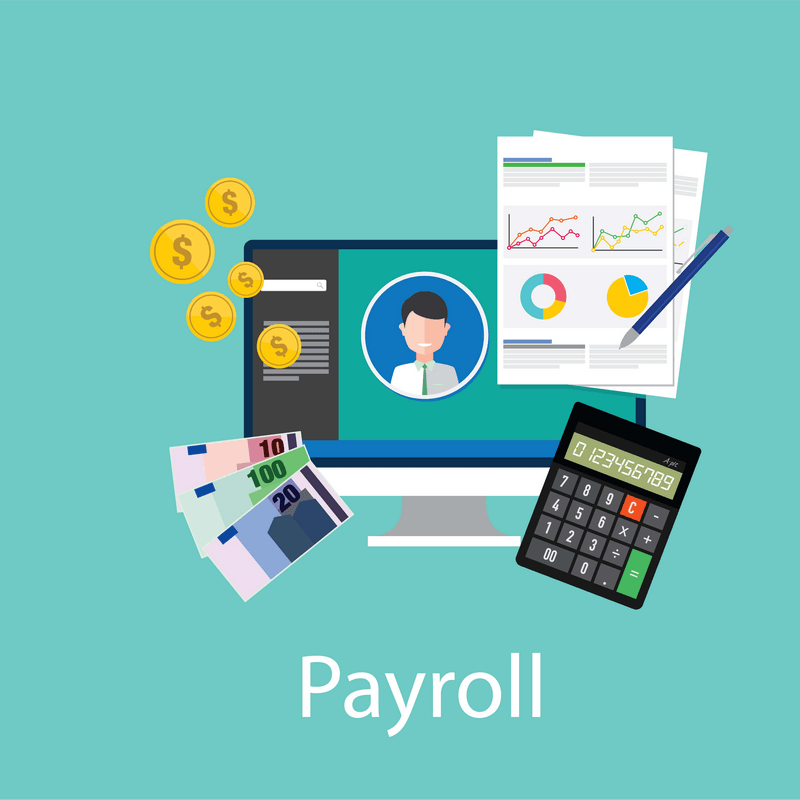You’re fired up with an idea for a new business, and worked out a strategy to make it happen.
Business for you is looking pretty promising, and now you’re ready to hire a small group of employees.
Congratulations!

But before you get started, there’s 8 payroll tips every business owner should know before getting the ball rolling.
1. Patience is Key.
Managing a payroll requires organization, attention to detail and quite a bit of patience.
As a new business owner, you’ll find yourself navigating the uncharted waters of pay periods, income taxes and intimidating government forms called W4s and 941.
These requirements can be anxiety inducing for even the most seasoned employer.
The truth is, the consequences for even the most innocent of payroll mistakes can be damaging for a small business.
Because of this, it’s crucial for employers to understand which payroll options are best for their business.
Streamline and help make your payroll process hassle-free and effective with the following tips.
2. Your Payroll Budget Needs to Be Airtight
First things first when you’re becoming an employer: create a budget.
When you sort out the logistics of your payroll, it’s crucial to remember to account for both wages and taxes.
Now that you’re an employer, you’re required to pay Social Security and Medicare taxes, and it’s very likely you will be required to pay unemployment taxes.
Make sure none of this catches you off guard by planning ahead for these expenses.
3. Categorize Your Employees and Contractors
Get smart about your business and utilize the wide range of employment services to your advantage.
Discern which employees need you to gain work experience (interns), and ones that are simply needed for certain periods of time or for certain services (contract workers, or temps).
Sift through your list of prospective employees and determine what sort of position will work best for you and them and then properly classify them into a position.
Full-time employees and interns typically should be classified as employees, while contractors are a whole different story for paperwork and taxes.
4. Salaried vs. Hourly
Kick off your payroll by determining whether your employees will be salaried or paid hourly.
For the most part, putting employees into salaried positions makes the process easier for the employer to manage.
Salaries keep the payroll process consistent and eliminate most of the added stress that comes with calculating how much an employee should be paid each month.
If you do make the decision to pay employees by the hour, find a system that helps you to keep proper track of an employee’s work hours and how much they should be compensated for, whether that means punching in and out of work, or recording time spent throughout the day.
5. Get Ready For Pay Day
Organize your payroll by deciding how often and when you will pay your employees.
Do you want to pay your employees every week?
Every other week?
Once a month?
Determine the beginning and end date of an employee’s work cycle and decide what pay schedule you want your team to function on.
Payroll calculations and the related taxes that come with payroll aren’t necessarily all that complex.
But the record keeping, filing and payment responsibilities can make your head spin if you’re disorganized.
Your payroll, or payment to your employees, have to be declared to state and federal agencies, such as the IRS, Social Security Administration, as well as your state.
6. Pick A Powerful Software System
Management software programs have taken most of the pain out of bookkeeping by eliminating the age of cluttered and overflowing filing cabinets.
Invest in a software program for your company that does the work of handing out checks for you.
Make the process all the more easy by hosting your software on a cloud so you can have access to its information at all times.
7. Get An HR Task Manager
Most small business owners take on the task of writing employee paychecks themselves.
This takes an enormous amount of time, and restrains being productive in areas more conducive to growing their business.
When you see that your business is able to accommodate the investment, simplify your payroll process by investing in an HR task manager.
Investing in an HR task manager can enable you to keep information organized and cut out the runaround of trying to wrangle information together when taxes come around.
8. Collect Employee and Employer Taxes
Speaking of taxes, remember that when it comes to them, what doesn’t kill you makes you stronger.
This is especially important to remember because they won’t be the fun part of seeing your business come into fruition.
As soon as you become an employer, part of what you pay each employee becomes collected from your employees paychecks for federal income tax, Social Security, and Medicare falls onto you.
The IRS provides an Employment Tax Guide for more information.
Avoid common payroll errors by considering reaching out to a skilled provider that can help you juggle the various tasks.
Call (877) 482-3008 or apply today to get started.
Disclaimer: The information and insights in this article are provided for informational purposes only, and do not constitute financial, legal, tax, business or personal advice from National Business Capital and the author. Do not rely on this information as advice and please consult with your financial advisor, accountant and/or attorney before making any decisions. If you rely solely on this information it is at your own risk. The information is true and accurate to the best of our knowledge, but there may be errors, omissions, or mistakes.




